
EXPERIMENTAL AGING RESEARCH
Scope & Guideline
Innovating Knowledge for a Longer Life
Introduction
Aims and Scopes
- Cognitive Aging:
Research in this area examines how cognitive functions such as memory, attention, and executive functions change with age, exploring both the mechanisms behind these changes and potential interventions to mitigate cognitive decline. - Physical Health and Aging:
This scope encompasses studies on physical health issues prevalent among older adults, including the impact of exercise, nutrition, and chronic diseases on physical and cognitive outcomes. - Psychosocial Factors:
Investigations into the psychosocial dimensions of aging, including the effects of social support, loneliness, and mental health on the well-being of older adults, are a significant focus. - Interventions and Rehabilitation:
The journal highlights research on various interventions, including physical activity programs, cognitive training, and therapeutic approaches aimed at enhancing the health and quality of life in the aging population. - Neuroscience of Aging:
Studies that delve into the neurobiological changes associated with aging, including neurodegenerative diseases and their impact on cognitive and emotional functioning, are also prominently featured. - Quality of Life and Well-Being:
Research assessing the quality of life among older adults, including factors that contribute to or detract from their overall well-being, forms a core part of the journal's mission.
Trending and Emerging
- Mental Health and Aging:
Increasing attention is being paid to the mental health of older adults, with studies exploring the relationships between depression, anxiety, and cognitive functioning, particularly in the context of social isolation. - Technology and Aging:
The integration of technology in aging research, including virtual reality and digital health interventions, is gaining traction, addressing both cognitive and physical health in older populations. - Holistic Interventions:
There is a trend towards evaluating holistic and multi-faceted interventions that combine physical, cognitive, and psychosocial elements to improve overall well-being in older adults. - Chronic Disease Management:
Research focusing on the management of chronic conditions in older adults, particularly how these conditions intersect with cognitive decline and quality of life, is increasingly prominent. - Resilience and Coping Mechanisms:
Emerging studies are exploring resilience and coping strategies among older adults, emphasizing how psychological factors can mitigate the impact of aging-related challenges. - Community-Based Research:
There's a growing emphasis on community-based approaches to aging research, which prioritize real-world applications and the involvement of older adults in the research process.
Declining or Waning
- Traditional Geriatric Assessments:
Research focused on conventional geriatric assessment tools seems to be waning, possibly as the field moves towards more integrated and holistic approaches to understanding aging. - Biological Determinism in Aging:
There appears to be a decline in studies emphasizing purely biological explanations for aging, with a growing preference for interdisciplinary approaches that incorporate psychological and social factors. - Age-Related Stereotypes:
While still relevant, the focus on age-related stereotypes and their impact on aging seems to be less prevalent in recent publications, possibly overshadowed by more actionable research on interventions. - Pharmacological Interventions:
There has been a noticeable reduction in studies solely focused on pharmacological treatments for age-related conditions, as interest shifts towards lifestyle and behavioral interventions. - Cross-Cultural Studies:
The volume of cross-cultural research examining aging and its effects across different populations appears to be decreasing, suggesting a more localized focus in recent studies.
Similar Journals
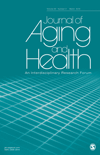
JOURNAL OF AGING AND HEALTH
Connecting research and policy for aging excellence.The JOURNAL OF AGING AND HEALTH, published by SAGE PUBLICATIONS INC, is a preeminent peer-reviewed journal dedicated to advancing research in the field of gerontology and related disciplines. With an impressive impact factor and ranked Q1 across multiple categories including Community and Home Care, Geriatrics and Gerontology, and Health (Social Science), this journal has established itself as a vital resource for academics, clinicians, and policymakers alike. Spanning over three decades of publication from 1989 to 2024, it serves as a platform for innovative research and multifaceted discussions on aging, health, and the interplay of social factors influencing the elderly population. The journal's rigorous standards for publication ensure high-quality contributions that are impactful and relevant, making it an essential read for those dedicated to improving the health and quality of life for older adults. Although it is not an open-access journal, it provides comprehensive insights that are critical to understanding the complexities of aging in today's society.

Aging Brain
Pioneering Insights into the Aging ProcessAging Brain is a premier Open Access journal published by Elsevier, dedicated to advancing the understanding of the neurobiological changes associated with aging. Since its commencement in 2021, this journal has been pivotal in disseminating high-quality research that explores the intricate relationships between aging and cognitive functions, neurological disorders, and overall brain health. With a notable commitment to open accessibility, Aging Brain ensures that vital findings are available to a global audience, fostering collaboration and innovation in the field. Researchers, healthcare professionals, and students alike will find a rich repository of cutting-edge studies, reviews, and insights aimed at addressing the complexities of the aging brain. The journal stands as an influential platform for those passionate about enhancing the quality of life for the aging population, making it a valuable resource in gerontology and neuroscience.
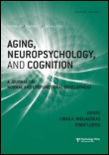
AGING NEUROPSYCHOLOGY AND COGNITION
Championing research for a brighter cognitive future.AGING NEUROPSYCHOLOGY AND COGNITION, published by ROUTLEDGE JOURNALS, TAYLOR & FRANCIS LTD, is a leading scholarly journal that spans the interdisciplinary fields of psychology, neuropsychology, and gerontology. With a strong focus on understanding aging processes and cognitive function, this journal serves as a critical platform for researchers, clinicians, and students dedicated to advancing knowledge in the realm of cognitive aging. The journal, established in 1994, presents high-quality research articles, comprehensive reviews, and innovative studies that contribute to the discourse surrounding mental health and aging. Notably, it has been recognized with a 2023 Q2 ranking in Experimental and Cognitive Psychology and Neuropsychology categories, reflecting its significant impact within these domains. The journal includes open access options, making it widely accessible to a global audience. Researchers interested in the latest findings and theoretical developments in aging neuropsychology will find this journal an invaluable resource, further enhanced by its robust Scopus rankings and commitment to academic excellence through 2024 and beyond.
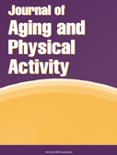
JOURNAL OF AGING AND PHYSICAL ACTIVITY
Transforming lives with insights into aging and exercise.JOURNAL OF AGING AND PHYSICAL ACTIVITY is a premier academic journal dedicated to advancing the understanding of the multifaceted interactions between aging and physical activity. Published by Human Kinetics Publishers, this journal serves as a vital platform for researchers, practitioners, and students in geriatrics, gerontology, physical therapy, rehabilitation, and sports science. With an impact factor reflecting its influential contributions, the journal is classified in multiple categories, including Q2 rankings in both Physical Therapy, Sports Therapy and Rehabilitation and Rehabilitation. The scope of the journal spans from 1996 to 2024, encompassing a wealth of research that informs best practices and interdisciplinary collaborations on enhancing the quality of life for older adults. While the journal is not open access, it remains an essential resource for those committed to fostering healthier aging through evidence-based practices and innovative research.

Frontiers in Aging
Unraveling the Complexities of Aging TogetherFrontiers in Aging is a leading academic journal published by FRONTIERS MEDIA SA, dedicated to advancing the understanding of the biological processes associated with aging. Established in 2020, this open-access journal aims to bridge the gap between various disciplines including genetics, molecular biology, and physiology, providing a multidisciplinary platform for researchers and clinicians alike. With a notable impact factor denoted by its Q2 quartile rankings in Aging, Genetics, and Molecular Biology, and a Q1 ranking in Physiology as of 2023, the journal is recognized for its contribution to the scientific community. Located in Lausanne, Switzerland, it is committed to promoting open discourse and publishing cutting-edge studies that address the complexities of aging and its implications for health and longevity. The journal’s editorial board, consisting of leading experts, ensures the rigorous peer-review process, maintaining high academic standards and fostering innovation in aging research.
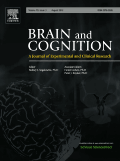
BRAIN AND COGNITION
Connecting Neuroscience with Psychological InsightsBRAIN AND COGNITION, published by Academic Press Inc Elsevier Science, stands as a vital resource for researchers and practitioners in the realms of cognitive neuroscience and psychology. Established in 1982, the journal has continuously evolved, showcasing cutting-edge research that bridges the understanding of brain functions and cognitive processes up to 2024. With an impressive impact factor reflecting its commitment to high-quality scholarship, the journal currently holds a prestigious Q1 ranking in Arts and Humanities (miscellaneous) and notable Q2 rankings in various psychology fields, including Cognitive Neuroscience, Developmental and Educational Psychology, Experimental and Cognitive Psychology, and Neuropsychology. This multidisciplinary journal cultivates a rich academic dialogue, offering valuable insights to professionals, researchers, and students alike. Although it does not offer open access, its robust indexing in Scopus and consistent contribution to important discussions in cognitive research define its critical role in advancing knowledge and innovation in the cognitive sciences.
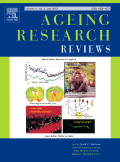
AGEING RESEARCH REVIEWS
Decoding the Biology of AgingAGEING RESEARCH REVIEWS, published by Elsevier Ireland Ltd, is a prestigious academic journal dedicated to advancing our understanding of the biological, psychological, and societal aspects of aging. With an ISSN of 1568-1637 and E-ISSN of 1872-9649, this journal has established itself as a leading resource in the fields of Aging, Biochemistry, Biotechnology, Molecular Biology, and Neurology, consistently ranked in the Q1 category across these disciplines as of 2023. For researchers, students, and professionals eager to explore cutting-edge findings and innovative methodologies, AGEING RESEARCH REVIEWS gathers comprehensive reviews that facilitate a deeper understanding of age-related processes. Its high impact factor and exceptional Scopus rankings—ranking #1 in Aging and #3 in Neurology—underscore its critical role in shaping contemporary aging research. This journal not only serves as a vital reference point but also fosters a collaborative space for the scientific community focused on improving health outcomes across the life span. Published continuously since 2002 and with a converging focus through 2024, AGEING RESEARCH REVIEWS remains committed to disseminating impactful knowledge that drives progress in our understanding of the aging process.
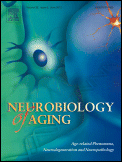
NEUROBIOLOGY OF AGING
Transforming Understanding of Aging Through NeurobiologyNEUROBIOLOGY OF AGING, published by Elsevier Science Inc, is a premier journal dedicated to advancing our understanding of the complex interactions between the aging process and neurobiological mechanisms. With an ISSN of 0197-4580 and E-ISSN 1558-1497, the journal has established itself as a critical resource in the fields of Aging, Developmental Biology, Geriatrics and Gerontology, Clinical Neurology, and Neuroscience. Boasting a Q1 ranking in multiple categories, the journal is positioned within the top echelons of scholarly publication, underscoring its significant impact with an impressive Scopus ranking in various subfields. Committed to disseminating high-quality, peer-reviewed research, NEUROBIOLOGY OF AGING welcomes original articles, reviews, and research notes aiming to uncover the underlying processes of aging on the nervous system, fostering collaboration among researchers, professionals, and students alike. Although primarily subscription-based, the journal continues to play a vital role in shaping the discourse on aging and neurobiology, making it an essential publication for those engaged in this dynamic field.
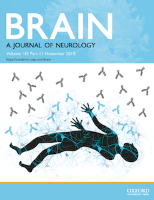
BRAIN
Elevating Understanding of Neurological Health Across DisciplinesBRAIN, published by Oxford University Press, stands as a preeminent journal in the realms of neurology and medicine, with a formidable impact factor reflecting its rigorous peer-reviewed standards and significant contributions to the field. With its ISSN 0006-8950 and E-ISSN 1460-2156, this esteemed publication spans over a century of exceptional research, converging from its historical roots in 1878 to current groundbreaking studies. BRAIN boasts a distinguished rank of #8 out of 400 in the Scopus category of Neurology (Clinical), placing it in the 98th percentile of institutions, indicative of its influence and reach. Operating under the Q1 category in both Medicine (Miscellaneous) and Clinical Neurology, the journal is dedicated to fostering interdisciplinary dialogue among researchers, clinicians, and students alike. With a focus on innovative findings and clinical advancements, BRAIN serves as a vital resource for those seeking to deepen their understanding of neurological disorders and the evolving landscape of medical research.

European Journal of Geriatrics and Gerontology
Exploring innovative solutions for elderly care.Welcome to the European Journal of Geriatrics and Gerontology, a peer-reviewed platform dedicated to advancing knowledge and research in the fields of geriatrics and gerontology. Published by GALENOS PUBL HOUSE, this journal serves as a critical resource for researchers, healthcare professionals, and students who are involved in the care, treatment, and study of elderly populations. Since its inception in 2019 and running through 2024, the journal aims to foster interdisciplinary collaboration and disseminate innovative research that addresses the unique challenges faced by older adults. With an ISSN of 2687-2625, the journal is classified in the Q4 quartile of the Geriatrics and Gerontology category, signifying its emerging influence within the academic community, despite its current Scopus ranking of #113 out of 116, reflecting a rich opportunity for growth and visibility. Although the journal is not open access, it maintains a commitment to scholarly rigor and quality. Engage with the European Journal of Geriatrics and Gerontology to contribute to and learn from the evolving discourse in aging research.